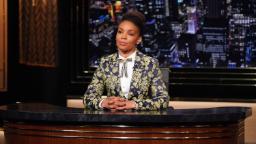Amber Ruffin: I didn’t think there was a space for me in late-night
[ad_1]

In those days, “network television shows all ended around 11 o’clock,” explains veteran comedy writer David Pollock in CNN Original Series “The Story of Late Night.” Soon a flag would wave, a test pattern would emerge, and by the time the network went to static you knew it was time for bed.
There was so much room for experimentation in late-night programming, Entertainment Weekly editor Sarah Rodman adds, “they literally could have done anything.”
Except, it seems, hire a woman or person of color to host. Fast forward 67 years, and not a whole lot has changed. Late-night is still known as a “boys club” of White men — so much so that one of the women now successfully breaking into that club never imagined she could.
“I never gave late-night one half of an ounce of thought, because it just never occurred to me that might become available to me,” says Amber Ruffin, the host of the breakout “The Amber Ruffin Show,” on Bill Carter’s “Behind the Desk: The Story of Late Night” podcast. “It wasn’t even like there were different kinds of White guys.”
The late-night host gig, however, was a different kind of conquest.
“This may be the least diverse thing of our lives, so, no, I never thought, ‘OK, there’ll be some room for me here.’ Not ever,”” Ruffin says.
Around 2016, Ruffin and fellow “Late Night” writer Jenny Hagel began to join Meyers for a segment called “Jokes Seth Can’t Tell,” showing how well Ruffin could elicit laughs from behind a desk.
“Every time you perform, you stretch out everyone’s expectations,” Ruffin says. “And now we are really just doing whatever the rip we want.”
“I find myself less and less going, ‘OK, but can White people understand it?’ You know, I feel like I haven’t wondered that in, like, a year,” Ruffin says, seizing the opportunity for a joke. “The times, they are a’changing.”
“There are these tiny opportunities for people of color, and then they are gone as quickly as they arrived,” Ruffin tells Bill Carter. “But lots of the bigger networks give a lot more money and a lot more time to young White men finding their footing, whereas people of color aren’t really granted that opportunity. You just have to come ready-made. And it is harder and it is unfair, but it is not impossible.”
[ad_2]

